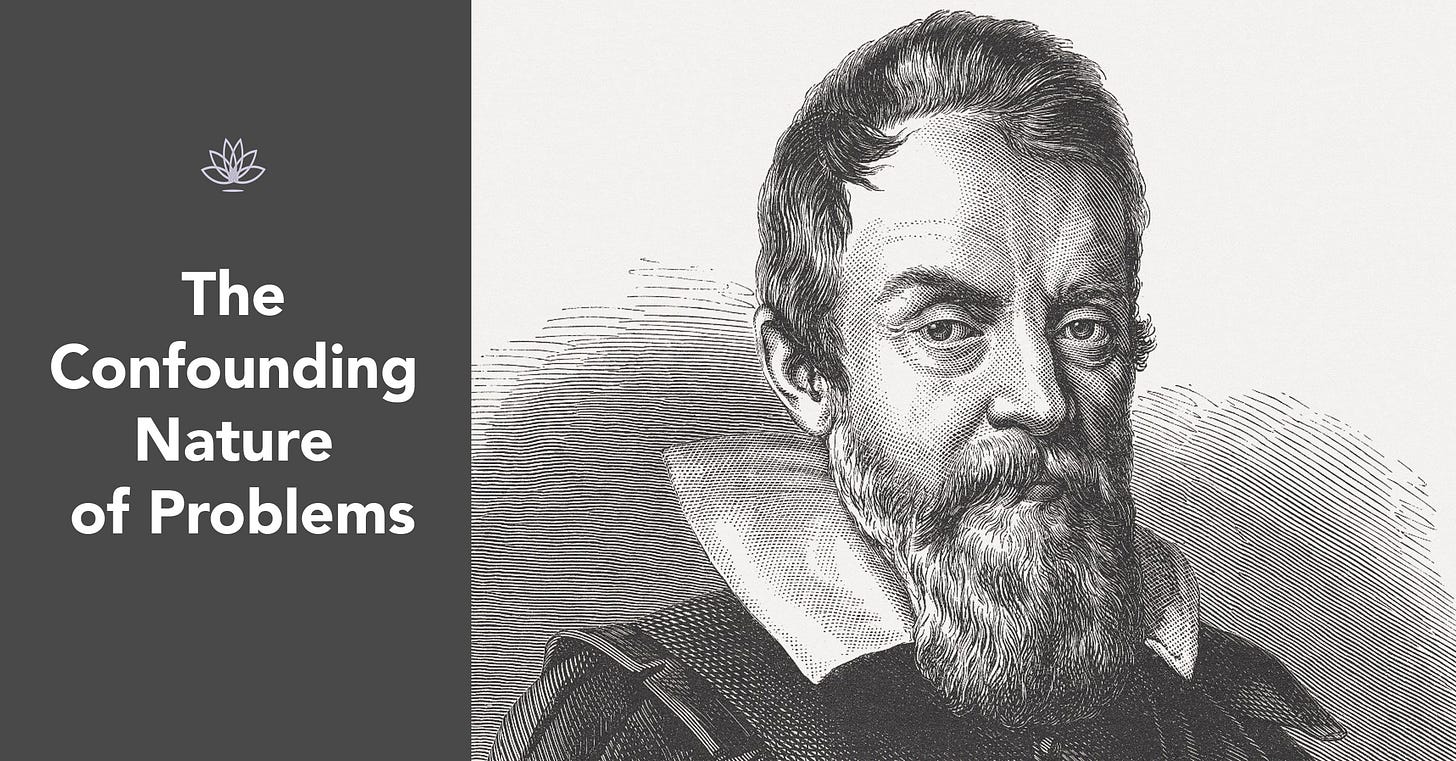The Confounding Nature of Problems
In the early 17th century, Galileo Galilei, an Italian astronomer, physicist, and mathematician, found himself entangled in a clash between prevailing beliefs and his groundbreaking discoveries. At that time, the predominant view held by the Church, and society, was that the Earth stood at the center of the universe, with celestial bodies orbiting around it.
However, Galileo's meticulous observations through the use of his newly devised telescope challenged this long-accepted earth-centric notion. His revolutionary findings included the phases of Venus and the four largest moons of Jupiter. These measurements provided compelling evidence for a heliocentric model of the solar system, originally proposed one hundred years earlier by Nicolaus Copernicus.
The Church, suffice it to say, was not happy. Galileo was brought up on charges of heresy and ordered to renounce his conclusions, or risk punishment of torture and death.
This is the confounding nature of problems. By definition they are situations regarded as unwelcome to an existing point of view. Confronted by them, we naturally default to - and defend - pre-established beliefs.
Rare is the individual (or nation) who considers, “Perhaps there’s a mistake in my position.”
After all, beliefs are backed by conviction, faith, and trust. We don’t come by them lightly, and we certainly don’t relinquish them easily. A mere cursory glance into the annals of history reveals the calamitous damage wrought on behalf of belief.
The confounding nature of problems.
Yet might there be another perspective? To be seen not as challenge but as choice. A Course in Miracles suggests just such a solution:
Now you are being shown you can escape [from all suffering]. All that is needed is you look upon the problem as it is, and not the way that you have set it up. (T-27.VII.2)
How might this problem look if I didn’t hold a solid stance?
It took the Catholic Church another 300 years before acknowledging the Earth revolves around the sun. Galileo, for his part, outwardly pandered to Church demands while privately continuing to look upon this geocentric problem as it was - not how others set it up.
In our own dealings with problems, we too have a choice. To lament our lot and denounce circumstances, or remove the distorting filters of conditioning, expectation, and judgment. Choosing unfettered sight leads beyond limiting interpretation to the radiant light of truth, where all difficulties are instantly dissolved.
Join me in Thursday's class where we'll explore the confounding nature of problems, and how we can transcend them into the welcoming arms of peace. I look forward to seeing you then.


